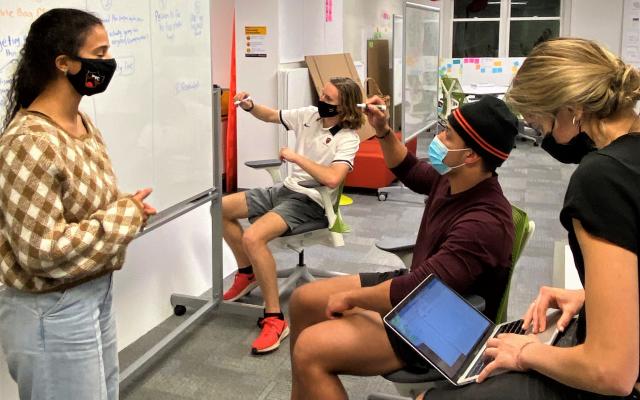
How might we better understand the promises of eco-friendly bag alternatives within the context of the upcoming statewide single-use plastic and paper bag ban, such that the actions deliver the intent?
Starting in May 2022, New Jersey will be joining eight other states, beginning in California, in banning single-use plastic bags. Single-used paper bags, disposable polystyrene-foam food containers and cups, too, will be banned in all stores and foodservice businesses in New Jersey. S864, signed into law by Governor Phil Murphy in Nov. 2020, was hailed as one of the most stringent laws of its kind nationwide. New Jersey “With today’s historic bill signing, we are addressing the problem of plastic pollution head-on with solutions that will help mitigate climate change and strengthen our environment for future generations,” stated Murphy. Paper bags, on the other hand, require energy and resources to produce, therefore contributes to pollution as well.
Looking ahead, a statewide focus will be on reusable bags, and a paradigm shift from disposables to reusables. Environmental organizations and supporters of the ban believe that this will prompt people to look at eco-friendly alternatives when it comes to packaging and bags. Reusable bags are not a new concept, and large and small retail and grocery stores and corporations across the nation have long been selling and distributing reusable bags. However, when it comes to the definition of a legal reusable bag, it differs by state, cities, and even towns and counties. Supported by statistics from states around the U.S., opponents of the bag ban have argued that while the ban has successfully reduced single-use plastic bags, both in the count and by weight, reusable plastic bags, which are more difficult to recycle and have a larger carbon footprint, have taken the place of single-use bags in recycling centers. With the bag ban, people who would normally reuse supermarket bags as trash bags or bin liners will have to buy plastic bags to use instead. Furthermore, other plastic alternative skeptics have argued that some of these supposedly green alternatives might not lead to long-term sustainability, or even harmful to the environment.
The adverse effects of single-use bags are indisputable, and the implementation of the bag ban will undoubtedly reduce this particular type of waste at the source. Yet, this effort must be coupled with considerations of the environmental impact and life cycle of the replacements. For this Tiger Challenge, a team of Princeton students will work with Sustainable Princeton to delve into the deeper issues surrounding a well-intended bill, and design creative solutions to address them.
Faculty Advisor:
TBD
Community Partner:
Sustainable Princeton; Princeton Merchants Association



